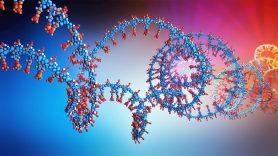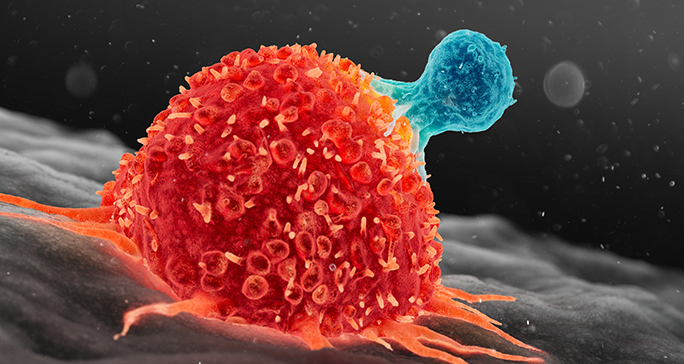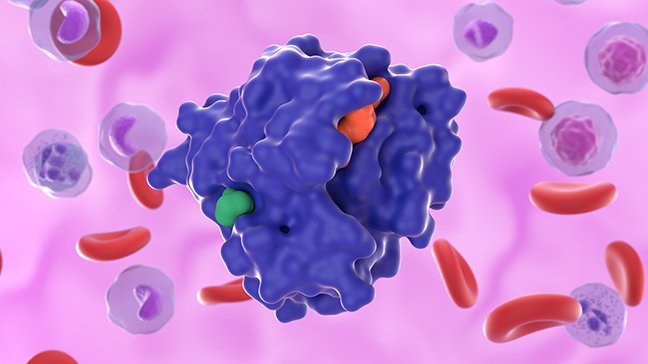- Diseases
- Acoustic Neuroma (16)
- Adrenal Gland Tumor (24)
- Anal Cancer (70)
- Anemia (2)
- Appendix Cancer (18)
- Bile Duct Cancer (26)
- Bladder Cancer (74)
- Brain Metastases (28)
- Brain Tumor (234)
- Breast Cancer (728)
- Breast Implant-Associated Anaplastic Large Cell Lymphoma (2)
- Cancer of Unknown Primary (4)
- Carcinoid Tumor (8)
- Cervical Cancer (164)
- Colon Cancer (168)
- Colorectal Cancer (118)
- Endocrine Tumor (4)
- Esophageal Cancer (44)
- Eye Cancer (36)
- Fallopian Tube Cancer (8)
- Germ Cell Tumor (4)
- Gestational Trophoblastic Disease (2)
- Head and Neck Cancer (14)
- Kidney Cancer (130)
- Leukemia (342)
- Liver Cancer (50)
- Lung Cancer (286)
- Lymphoma (278)
- Mesothelioma (14)
- Metastasis (30)
- Multiple Myeloma (100)
- Myelodysplastic Syndrome (60)
- Myeloproliferative Neoplasm (6)
- Neuroendocrine Tumors (16)
- Oral Cancer (102)
- Ovarian Cancer (178)
- Pancreatic Cancer (162)
- Parathyroid Disease (2)
- Penile Cancer (14)
- Pituitary Tumor (6)
- Prostate Cancer (150)
- Rectal Cancer (58)
- Renal Medullary Carcinoma (6)
- Salivary Gland Cancer (14)
- Sarcoma (238)
- Skin Cancer (302)
- Skull Base Tumors (56)
- Spinal Tumor (12)
- Stomach Cancer (66)
- Testicular Cancer (28)
- Throat Cancer (92)
- Thymoma (6)
- Thyroid Cancer (100)
- Tonsil Cancer (30)
- Uterine Cancer (86)
- Vaginal Cancer (18)
- Vulvar Cancer (22)
- Cancer Topic
- Adolescent and Young Adult Cancer Issues (22)
- Advance Care Planning (12)
- Biostatistics (2)
- Blood Donation (18)
- Bone Health (8)
- COVID-19 (360)
- Cancer Recurrence (120)
- Childhood Cancer Issues (120)
- Clinical Trials (628)
- Complementary Integrative Medicine (22)
- Cytogenetics (2)
- DNA Methylation (4)
- Diagnosis (240)
- Epigenetics (6)
- Fertility (62)
- Follow-up Guidelines (2)
- Health Disparities (14)
- Hereditary Cancer Syndromes (128)
- Immunology (18)
- Li-Fraumeni Syndrome (8)
- Mental Health (122)
- Molecular Diagnostics (8)
- Pain Management (62)
- Palliative Care (8)
- Pathology (10)
- Physical Therapy (18)
- Pregnancy (18)
- Prevention (940)
- Research (390)
- Second Opinion (78)
- Sexuality (16)
- Side Effects (616)
- Sleep Disorders (10)
- Stem Cell Transplantation Cellular Therapy (216)
- Support (408)
- Survivorship (330)
- Symptoms (182)
- Treatment (1794)
Is pancreatic cancer hereditary? 9 things to know
3 minute read | Published February 10, 2022
Medically Reviewed | Last reviewed by an MD Anderson Cancer Center medical professional on February 10, 2022
Many cancers have been linked to genetic mutations, whether they’re inherited or occur spontaneously.
Certain BRCA mutations, for instance, have been shown to increase the risk of breast and ovarian cancers in the people who carry them. The mutation associated with Lynch syndrome, on the other hand, increases a person’s chances of developing colorectal and endometrial cancers. And mutations in the TP53 gene are often found in people with Li Fraumeni syndrome, which makes them more likely to develop multiple cancers over the course of their lifetimes.
But have any particular genetic mutations been linked to pancreatic cancer? And is pancreatic cancer ever hereditary? We checked in with Florencia McAllister, M.D., a gastrointestinal medical oncologist who specializes in pancreatic cancer.
So, is pancreatic cancer hereditary?
I’d say roughly 20-30% of patients diagnosed with pancreatic cancer may have a hereditary cancer. But only about 7% will have an inheritable germline mutation, such as BRCA, detected in testing. Another 5% or so will have a family history of pancreatic cancer, not a known mutation.
Which genetic mutations are associated with pancreatic cancer?
The most common one is BRCA (BRCA1 and BRCA2). But there are others, including CDKN2A, STK11, TP53, and PRSS1.
How do most people learn that they have one of these genetic mutations?
Current guidelines recommend universal germline testing for every patient who’s diagnosed with pancreatic cancer. At MD Anderson, we have a video-based program that allows efficient testing followed by consultation with a genetics counselor for positive cases.
Healthy close relatives of patients with pancreatic cancer who had positive genetic testing would usually qualify for screening under current guidelines.
What should an otherwise healthy person do if they find out they have a mutation through testing?
If their test results are positive, there may be an opportunity to enter a screening program for high-risk individuals. So, they should talk to their doctor to discuss screening options for pancreatic cancer, as well as other types of cancer, depending on the mutation identified.
What causes pancreatic cancer?
It’s probably a combination of things, including genetic predisposition and lifestyle factors, such as smoking and alcohol use.
Is there anything people can do to reduce their risk of developing pancreatic cancer?
Obesity, diabetes and smoking can all cause inflammation, which is linked to an increased risk of pancreatic cancers. So, maintaining a healthy weight, eating a balanced diet, and avoiding tobacco products are all things individuals can do to lower their risk.
By closely following people with certain mutations and doing regular imaging through high-risk screening programs, we can also spot any concerning lesions early, do surgery to intercept them, and hopefully, prevent them from progressing to fully fledged cancer.
Are any symptoms specific to hereditary pancreatic cancers?
Pancreatic cancer is often asymptomatic in its earliest stages, regardless of mutation status. So, by the time symptoms start appearing, the cancer is usually fairly advanced. The most common symptoms of pancreatic cancer are:
- Abdominal/back pain (sometimes feels like a “belt” of pain around the middle)
- Unintentional weight loss
- Jaundice (yellow coloration of skin or eyes)
Are pancreatic cancers with genetic mutations treated any differently from those without mutations?
In general, pancreatic cancer patients with germline mutations do tend to have better outcomes. Some mutations may affect genes required for DNA-repair, for instance, increasing their sensitivity to certain drugs. An example of this would be the use of PARP inhibitors in patients with a BRCA mutation.
Some mutations can also indicate higher sensitivity to particular chemotherapy agents — like platinum-based therapies such as oxaliplatin — so regimens containing this drug could become first-line treatment in those patients.
Are there any clinical trials available for patients with mutation-driven pancreatic cancers?
Many clinical trials are available. The most exciting ones involve new combinations of immunotherapy and other drugs that target DNA-repair mechanisms. While the individual drugs may not be new, the combinations are, and that’s what could make them more potent.
Request an appointment at MD Anderson online or by calling 1-855-776-3498.
Related Cancerwise Stories

Current guidelines recommend testing for every patient who’s diagnosed.
Florencia McAllister, M.D.
Physician





